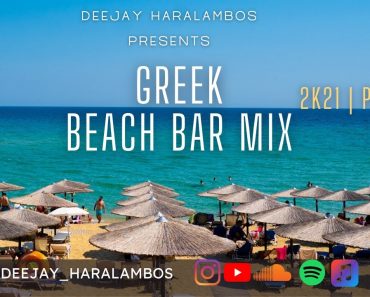► Listen on Amazon
► Listen on Apple
► Listen on Spotify
► Listen on YouTube
You can find previous episodes of “The Stone Chapel Podcast” at Lanier Theological Library.
“The Stone Chapel Podcast” is part of the ChurchLeaders Podcast Network.
This transcript has been edited for clarity and space.
Constantine Campbell
Hi there. My name is Constantine Campbell. I’m a professor and research director at the Sydney College of Divinity in Australia.
David Capes
Dr. Constantine Campbell. Con, good to see you. Welcome to The Stone Chapel Podcast.
Constantine Campbell
Thanks so much, David. It’s great to be with you.
David Capes
Well, there are people around that know you, and some who don’t know you and they are listening to this podcast. For those who don’t know you, what do we need to know about Con Campbell?
Constantine Campbell
I think, in a nutshell, I could say I’m a New Testament scholar by day and jazz musician by night.
David Capes
That’s a great description. I love it.
Constantine Campbell
I’m a New Testament scholar focusing on Biblical Greek, the Apostle Paul, and various other things in the New Testament. And I’m a jazz saxophonist by training. I also teach at the Australian National University in jazz performance.
David Capes
So, which came first? I guess music had to come early.
Constantine Campbell
Yeah, jazz came first. I started learning piano at the age of six, and then saxophone from the age of 12, and got hooked on jazz at about 15. Straight after school, I went to music school. In the course of my music studies, I actually became a Christian, and shortly after music school, I changed direction and went to seminary. But I kept playing all along, kept doing gigs and playing with friends who were professional musicians, and so I always consider myself an active professional jazz musician, but just with a day job.
David Capes
Music sort of feeds the soul, doesn’t it? Scripture and theology can feed it in certain ways, but music does something too.
Constantine Campbell
It does. And I think I’ve come to a place where I can better appreciate and respect the importance of the creative arts, because I think I came from an evangelical tradition that played down the value of beauty and creativity in the arts. It was only used in a utilitarian way. If you’re going to preach the gospel or play in church, that was the only Christian use of music. And now I realize, no, that’s not right. God is a creative God who delights in these things and has given us a creative capacity to express our humanity and to resonate with like you say, food for the soul and communicate some ways that words simply can’t do.
David Capes
Let’s talk about your book, Basics of Verbal Aspect of Biblical Greek. It’s your second edition. It’s with Zondervan Academics. Your first edition did quite well, and this second edition promises to do just as well, if not better, because we’re still learning Greek these days. But what is verbal aspect? Because a lot of people, maybe my age or older, when they studied Greek, at some point, they talked more about tenses than they did aspect. So, when you say verbal aspect, what do you mean by that?
Constantine Campbell
Verbal aspect is a universal feature of language, which means that all languages that we know of can be described through verbal aspect, and it’s a way of thinking about verbs beyond the tense. One way of thinking is there’s a past tense, there’s a present tense, there’s a future tense, so it’s very temporal. It’s an action located in time. But actually, if you think about living in English, there’s a lot more going on with verbs than just that. The temporal part is significant. It’s not irrelevant. What aspect is really about is how an author or speaker chooses to portray an action based on whether they want to portray it from the inside of the action, as though it’s unfolding before your eyes while you’re communicating it. Or from outside the action. It happened over here, or it will happen over there.
Here’s an example in English. I was walking down the street, and it was a lovely, sunny day, and my neighbor starts talking to me, and then I keep on walking. That’s presenting some actions as though it’s unfolding. The way I’m communicating it, you feel like you’re there. You’re seeing it all happen. Whereas I could say the exact same content but present it differently. I walked down the street. I talked to my neighbor. I went to the store. It doesn’t have the same effect of making the person hearing it feel as though it’s unfolding right before their eyes, or that they’re in the middle of the action.
So verbal aspect is really about the difference between that internal portrayal, which makes you feel like it’s unfolding, like you’re in a movie. Or the external portrayal of an action where it just feels like you’re summarizing what happened. You don’t really feel part of the events or the actions, but it’s just being reported to you. We do that in English, and so verbal aspect happens in English, but most people don’t know about it.
David Capes
Yes, we learn past, present, and future.
Constantine Campbell
Yeah, that’s right. Again, if you reflect a little more on what’s actually happening and the effect of the way that we portray actions, that’s where verbal aspect comes in. It’s the same thing in Greek. When I published the book, some people said oh, verbal aspect is a fad. It’s a new thing, and it’s going to be a passing fad. But the truth is, if you look at the scholarship, study of verbal aspect in ancient Greek has been around for more than 150 years. It’s not a fad. It has taken a long time for the mainstream teaching of Greek to incorporate the insights from the study of verbal aspect.
People say, when I was studying Greek, we only did the tenses. What I want to say is it’s not as though verbal aspect has been invented since then. It was around then, a long time before then too. Scholars were talking about it and writing about it, but it took time for the grammars to catch up and the pedagogy in the classroom teaching to catch up. It’s taken a long time, and that was a big reason why I wrote the textbook in the first place, in 2008, to make it accessible to be taught in the classroom.
David Capes
When students come to your classes, and they hear you teach about this, they might all say tell the story as if it’s unfolding before you. But in fact, sometimes stories are told almost as if you’re the third party looking on. Why wouldn’t we all tell stories the way a movie unfolds?
Constantine Campbell
Because it takes too long. Think about the gospels. The gospel authors speed up some parts of the narrative, and slow down some parts of the narrative. Sometimes they say, Jesus went over to Capernaum, and he taught the people, and he healed the sick, and then he went on his way. So bam, bam, bam, bam. Now that might have happened over a few days, but the narrative is compressed because the narrator doesn’t want you to stop and reflect on that point. The narrator just wants to tell you what happened. This happened; move on.
But then sometimes the narrative slows right down, because the gospel author records a whole conversation that Jesus has with someone. You get the actual words, and you get the back and forth. All of a sudden, you’re in the action. You’re seeing it happen, because the author wants you to focus on that. If you told the whole narrative like that, then you actually wouldn’t know which bits to focus on, and it would take you forever. It would take you 30 years to read a gospel.
David Capes
Too much detail.
Constantine Campbell
Yeah. And so a fundamental aspect of the way we communicate is to pick and choose what you can focus on. The way we tell stories reflects that. This happened. This happened, bam, bam, bam, bam, bam, to get you to this conversation, and let’s just pause here and watch that happen almost in real time. Because I want to share this conversation with you since it is really important.







